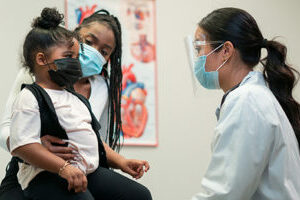From the American Academy of Pediatrics: “The COVID-19 pandemic and our nation’s racial reckoning have given new visibility to trauma and its impact on children.
Even before the pandemic, it was understood that the most fundamental threats to health have their roots in adversities experienced by children without sufficient buffering of a caregiver. Behavior, development, relationships and physical health can be affected for a lifetime due to the impacts of adverse experiences on brain development and neurophysiology, immune function and gene expression.
. . . While the science underlying toxic stress has been evolving for decades, guidance for policy and practical clinical application in pediatrics has lagged.
A new AAP policy statement and clinical report on trauma-informed care provide guidance for pediatricians, community partners and other child-serving clinicians to move this science out of the lab and into lives.
. . . Both documents emphasize the power of safe, secure, nurturing relationships — referred to as relational health — to mitigate the effects of potentially traumatic experiences and promote resilience . . . Pediatricians already address the effects of trauma that present as disturbances of developmental, behavioral or physical health. Recovery from post-traumatic stress is facilitated when these concerns are diagnosed appropriately and addressed with evidence-based treatment and within the context of a caregiving relationship.
‘Every health encounter in pediatrics is an opportunity to promote parent-child attunement, identify and ameliorate trauma, and promote child resilience,’ said AAP President-elect Moira A. Szilagyi, M.D., Ph.D., FAAP, a co-author of the policy and clinical report. ‘This is trauma-informed care — or what might better be termed resilience- and relationship-informed care. It provides a framework that begins in infancy, or even prenatally with families, and nurtures the parent-child relationship through the ages and stages of development to optimize child health, resilience and well-being.'”

***
Back to Around the Web











